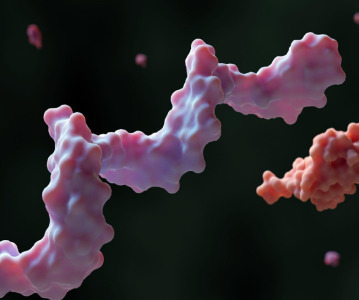Crown Reveals Strategy for Combined Drug-IR Therapy to Overcome Resistance to Oncology Therapeutics

Crown Bioscience, Inc. has developed treatment combination strategies with image-guided micro-irradiation (IGMI) to overcome drug resistance. These novel strategies at the pre-clinical stage of drug development will improve the ability of predicting success in clinical trials.
In the past, irradiation of tumours in animals was hindered by high doses being delivered to healthy tissue, and inaccurate irradiation dose estimations that do not mimic the modern fractionated clinical radiotherapy dosing which uses complex model-based dose calculation algorithms. The small animal radiation research platform (SARRP) from Xstrahl combines X-ray irradiation with CT imaging allowing IGMI similar to that used in the clinic. Crown has demonstrated how combining this IGMI with targeted oncology therapeutics can re-sensitize tumours which have become resistant to treatment.
Dr Jean-Pierre Wery, President at Crown Bioscience, said: “Oncological therapeutics have had limited success in the clinic, largely due to intrinsic resistance or acquired drug resistance resulting from repeated exposure to anti-cancer agents. Current irradiation technology used in the clinic is more advanced than that used in the pre-clinical setting, meaning that pre-clinical testing is not representative of results in the clinic. For drug discovery, crude methods of delivering irradiation are being used, and those crude methods do not translate into the clinic.”
He continued: “Recent work testing EGFR kinase inhibitors combined with irradiation on acquired resistance models developed in our labs, demonstrates the significant advancements we have made in pre-clinical combination therapies and their potential for success in testing new combination treatments and identifying biomarkers for drug discovery. This technology is superior to other techniques and platforms currently available for drug discovery.”
In previously untreated cases with no intrinsic resistance, the use of either therapeutic strategies or irradiation alone causes tumour regression. However, if a tumour has either intrinsic resistance or has been exposed to previous treatments and developed drug resistance, the tumor shows reduced sensitivity.
In the case of non-small cell lung cancer (NSCLC), mutations in EGFR are often associated with cancer and malignant tumour growth. Targeted agents such as Iressa and Tarceva effectively treat this type of cancer. However, it is very common for patients to develop acquired drug resistance resulting in relapse. The mechanisms of resistance are being elucidated and relevant biomarkers being identified. In the EGFR inhibitor resistant NSCLC model generated by Crown Bioscience, there is significant amplification of c-met which is a clinically-relevant mechanism of resistance to treatment. When Crizotinib, a c-met inhibitor, was used in combination with IGMI, significant re-sensitizing of the tumor to the inhibitor was observed and the response to the combination was much better than with either treatment alone. The ability to evaluate new as well as old drugs in a clinically relevant manner at the pre-clinical stage allows researchers to position and even re-position their oncology agents in combination with irradiation.
Through the use of live models in a novel human surrogate trial platform, HuTrials, which recruits patient-derived xenografts (PDX) in a Phase II-like trial, Crown Bioscience enables researchers to closely mimic cancer in humans in order to test the efficacy of new treatment strategies and compounds as well as identify genetic signatures of responders versus non-responders and ultimately identify predictive biomarkers. In addition, IGMI can be applied to syngeneic models in immune-competent mice to interrogate the synergy with immunotherapies. Crown's continued commitment to provide clinically-relevant models that are widely accessible for drug discovery research is underpinned by its unique platforms and cutting-edge approach.
Related News
-
News Google-backed start-up raises US$600 million to support AI drug discovery and design
London-based Isomorphic Labs, an AI-driven drug design and development start-up backed by Google’s AI research lab DeepMind, has raised US$600 million in its first external funding round by Thrive Capital. The funding will provide further power t... -
News AstraZeneca to invest US$2.5 billion in Beijing R&D centre
Amid investigations of former AstraZeneca China head Leon Wang in 2024, AstraZeneca have outlined plans to establish its sixth global strategic R&D centre in China. Their aim is to further advance life sciences in China with major research and manufact... -
News Experimental drug for managing aortic valve stenosis shows promise
The new small molecule drug ataciguat is garnering attention for its potential to manage aortic valve stenosis, which may prevent the need for surgery and significantly improve patient experience. -
News How GLP-1 agonists are reshaping drug delivery innovations
GLP-1 agonist drug products like Ozempic, Wegovy, and Mounjaro have taken the healthcare industry by storm in recent years. Originally conceived as treatment for Type 2 diabetes, the weight-loss effects of these products have taken on unprecedented int... -
News A Day in the Life of a Start-Up Founder and CEO
At CPHI we work to support Start-Up companies in the pharmaceutical industry and recognise the expertise and innovative angles they bring to the field. Through our Start-Up Programme we have gotten to know some of these leaders, and in this Day in the ... -
News Biopharmaceutical manufacturing boost part of new UK government budget
In their national budget announced by the UK Labour Party, biopharmaceutical production and manufacturing are set to receive a significant boost in capital grants through the Life Sciences Innovative Manufacturing Fund (LSIMF). -
News CPHI Podcast Series: The power of proteins in antibody drug development
In the latest episode of the CPHI Podcast Series, Lucy Chard is joined by Thomas Cornell from Abzena to discuss protein engineering for drug design and development. -
News Amgen sues Samsung biologics unit over biosimilar for bone disease
Samsung Bioepis, the biologics unit of Samsung, has been issued a lawsuit brought forth by Amgen over proposed biosimilars of Amgen’s bone drugs Prolia and Xgeva.
Position your company at the heart of the global Pharma industry with a CPHI Online membership
-
Your products and solutions visible to thousands of visitors within the largest Pharma marketplace
-
Generate high-quality, engaged leads for your business, all year round
-
Promote your business as the industry’s thought-leader by hosting your reports, brochures and videos within your profile
-
Your company’s profile boosted at all participating CPHI events
-
An easy-to-use platform with a detailed dashboard showing your leads and performance







.png)